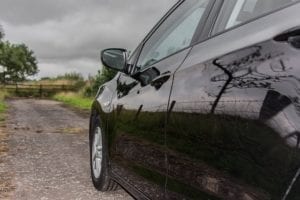
Can you expect reasonable privacy while you’re in a rental car?
That may seem like strange question to ask. In fact, many of you might never even have stopped to consider it before (and why should you have?) After all, it isn’t every day that most people in Michigan drive rental cars. And it’s not often that the average rental car driver encounters the police wanting to search their vehicle. And yet the issue has been getting a lot of press coverage recently because of a recent United States Supreme Court ruling.
What’s the backstory behind Byrd v. United States?
It started with Latasha Reed renting a car in New Jersey. She signed the agreement stating that she was the only driver, and that she wouldn’t let anyone else drive the car. But as soon as she walked out of the rental car building, Reed handed the keys over to her friend Terrence Byrd, who had been waiting outside. He put his possessions in the trunk and hit the road alone, headed for Pittsburgh, Pennsylvania. .
Sometime after he’d crossed the state border into Pennsylvania, state troopers pulled him over for a traffic infraction. That was when the police officer discovered a couple of interesting facts.
- Byrd has a criminal record that included drug and weapons convictions.
- The vehicle he was driving was a rental car, and
- He was not the authorized driver of the vehicle.
In conversation with the officer, Byrd admitted to having a joint with him in the car. The trooper searched the vehicle and discovered body armor, along with 49 bricks of heroin. As you can imagine, Byrd was immediately arrested and charged with possession of the drugs and a host of other federal crimes.
How did this case end up in front of the United States Supreme Court?
That’s an interesting story. Byrd’s defense attorney filed a motion to suppress the evidence found in the rental car’s trunk, on the grounds that the search had been unlawful. Unlawful, meaning a violation of the Constitutional 4th Amendment protection against unreasonable search and seizure. As you know, any evidence gathered during an unlawful search might be considered ‘fruit of the poisoned tree’ and therefore cannot be used against a defendant at trial.
The U. S. District Court, however, disagreed. And so did the U. S. Third Circuit Court Court of Appeals. According to both courts, because Byrd wasn’t listed on the rental agreement, he had no reasonable expectation of privacy.
And what did our United States Supreme Court have to say about the issue?
The United States Supreme Court, however, disagreed with the lower federal courts! In their recent unanimous ruling, SCOTUS (Supreme Court of the United States) decided that “The mere fact that a driver in lawful possession or control of a rental car is not listed on the rental agreement will not defeat his or her otherwise reasonable expectation of privacy. ” In other words, just because you aren’t listed as the assigned driver on a rental car agreement, doesn’t mean the police can violate your Fourth Amendment reasonable expectations of privacy when you’re inside the vehicle.
This case is a classic example of persistence on the part of Byrd and his criminal defense attorneys. Which is why we so often mention the importance of having the right skilled and experienced criminal defense attorney in our posts. Seriously, we cannot stress this enough – the law is not black and white. It is full of gray areas that are open to interpretation.
The only way to protect your rights is to make sure that you have the best possible defense attorney on your side, right from the start! Our criminal defense team has been fighting for clients all over Michigan since the last century. We can be reached 24 hours a day at 1 866 7NoJail.(1 866-766-5245) Our team is available for immediate crisis intervention.







